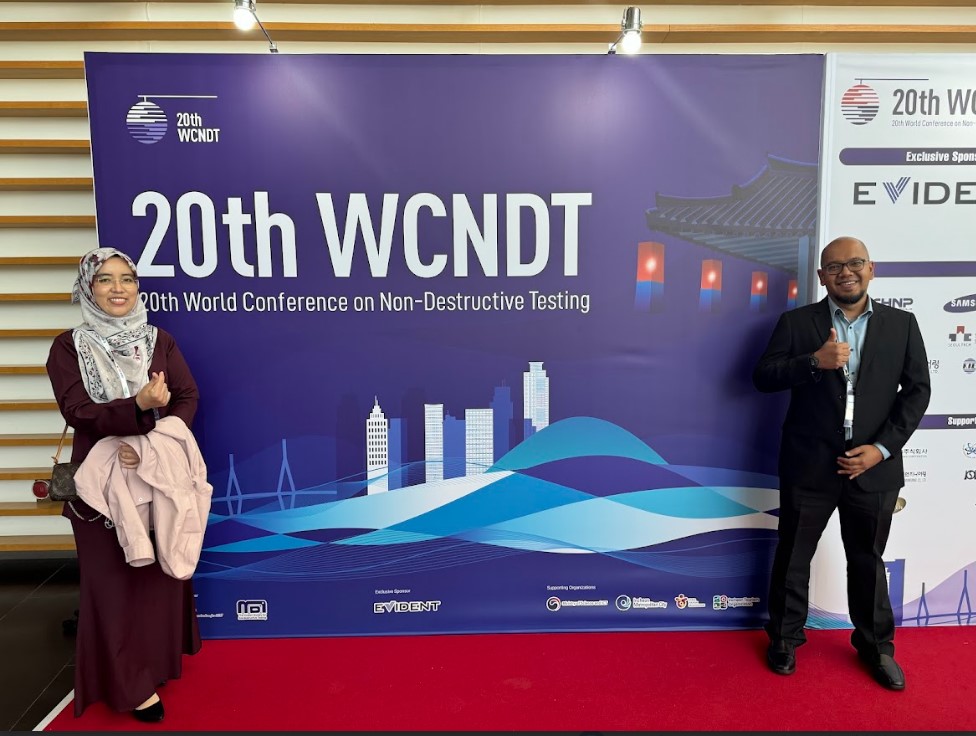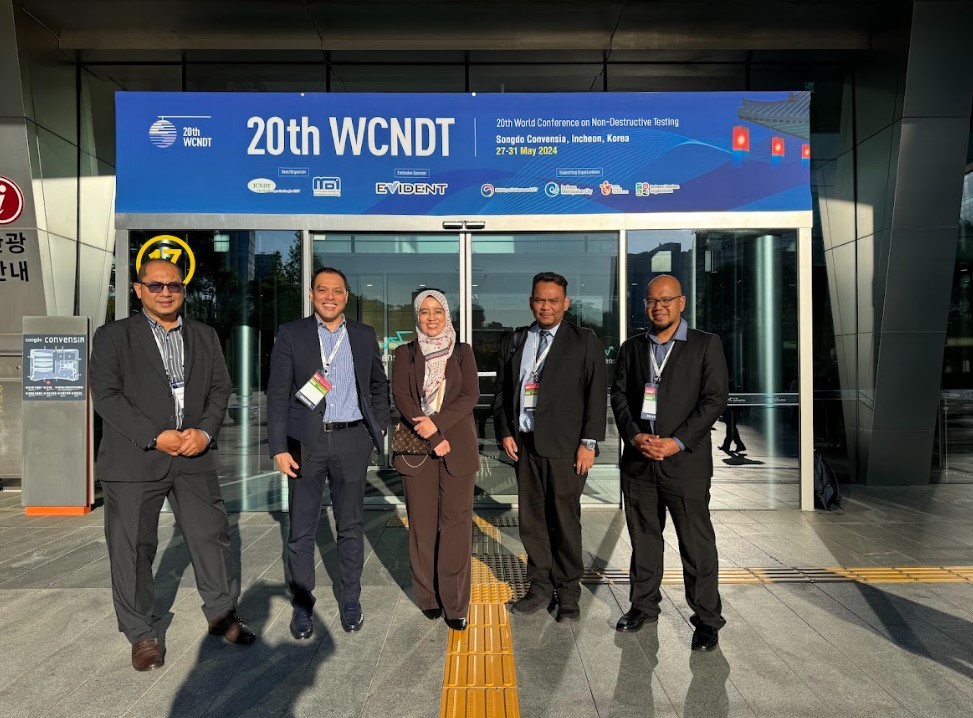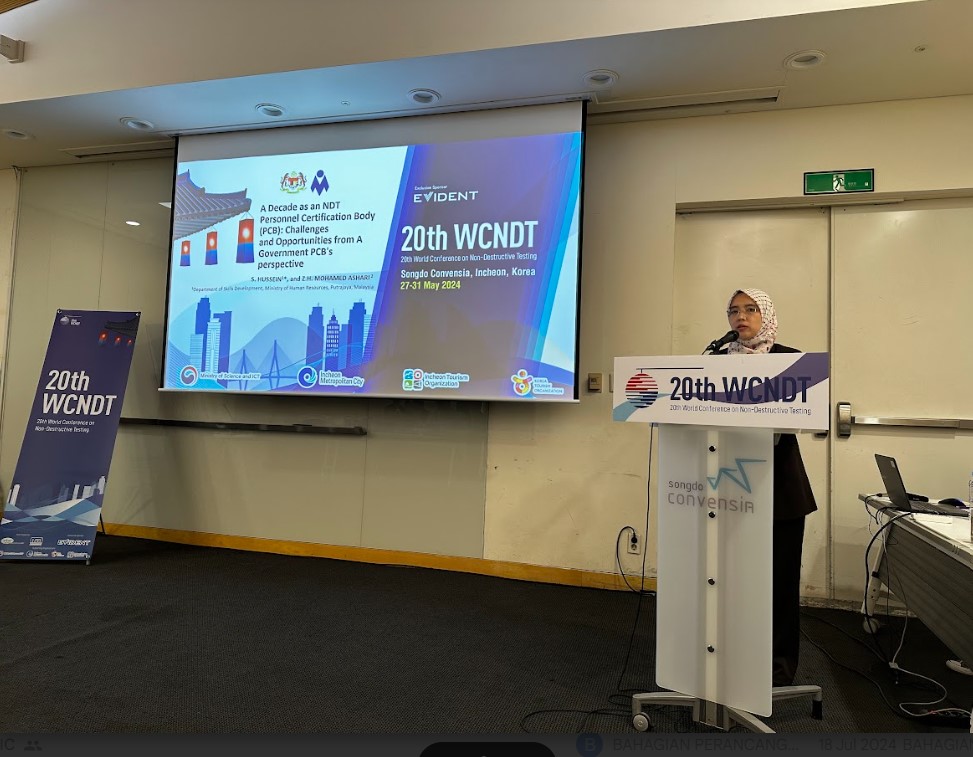THE INTERNATIONAL COMMITTEE FOR NON-DESTRUCTIVE TESTING
Non-Destructive testing is the branch of engineering concerned with all methods of detecting and evaluating flaws in materials. Flaws can affect the serviceability of the material or structure, so NDT is important in guaranteeing safe operation as well as in quality control and assessing plant life. The flaws may be cracks or inclusions in welds and castings, or variations in structural properties which can lead to loss of strength or failure in service.
Non-Destructive testing is used for in-service inspection and for condition monitoring of operating plants. It is also used for measurement of components and spacings and for the measurement of physical properties such as hardness and internal stress.
The essential feature of NDT is that the test process itself produces no deleterious effects on the material or structure under testing conditions.
The subject of NDT has no clearly defined boundaries; it ranges from simple techniques such as visual examination of surfaces, through the well-established methods of radiography, ultrasonic testing, magnetic particle crack detection, to new and very specialised techniques such as the measurement of Barkhausen noise and positron annihilation.
NDT methods can be adapted to automated production processes as well as to the inspection of localised problem areas.
DSD RECOGNITION
DSD has received recognition from ICNDT (International Committee for Non-Destructive Testing) from 26 September 2019 and has been listed in ICNDT MRA Schedule 2 (Download: Schedule 2 & Schedule 1) as an NDT Certification Body that has met the requirements and requirements of International Standards applicable (ISO 9712 and ISO 17024). ICNDT is an independent international organization composed of countries that implement the NDT certification system and is registered and based in Vienna, Austria.
The ICNDT MRA (Multilateral Agreement on Recognition) recognition indicates that the quality of the national certification system for the NDT program, namely SPKM-NDT, is equivalent to the international certification system.





20th World Conference on Non-Destructive Testing
Date: 27 May - 3 June, 2024
Venue: Songdo Convensia, Incheon, South Korea
The 20th WCNDT is a meeting platform for NDT industry players to share information and experiences related to the latest NDT technologies and certification bodies in the management of NDT examinations and certifications.
Officer Mdm. Salbiah Hussein from Division of Employment Standards and TVET Curriculum (BSPKTVET) presented a paper titled 'A Decade as an NDT Personnel Certification Body (PCB): Challenges and Opportunities from A Government PCB's Perspective' on the second day of the conference, 28 June 2024.
Several workshops (information-sharing sessions) related to NDT Certification organized by the International Committee for NDT (ICNDT) were also held throughout the conference.
Meanwhile from 1st to 3rd June 2024, this officer also representing Malaysia ISO TC135 dan SC7 Meeting. ISO/TC 135 is the technical committee responsible for overseeing and coordinating the development of ISO Standards in the field of Non-Destructive Testing (NDT). Under the ISO/TC 135 Technical Committee, there are eight (8) Sub-Committees (SC), each representing different NDT methods, including one SC for the Qualification & Certification of Personnel (SC7).
Malaysia is represented by the Department of Standards Malaysia (JSM), which is a P-member (full member) of all TC 135 and its Sub-Committees. However, JSM offers the Department of Skills Development (JPK) to attend as JSM's representative for TC 135 and SC7. For other SCs, JSM invites identified and approved technical experts, as agreed by the national mirror committee.


Courtesy Visits to Government Agencies, Training Centers and Non Destructive Testing (NDT) Industry in Nepal.
Date: 1st November - 4th November, 2022
Venue: Tribhuvan University Pulchowk Engineering Campus & Ministry of Education, Science and Technology (MEST) Kathmandu, Nepal
In addition, the International Atomic Energy Agency (IAEA) has appointed Malaysia through the Malaysian Nuclear Agency (ANM), which is a government agency under the Ministry of Science, Technology and Innovation (MOSTI) as a mentor to developing countries such as Nepal, in training and developing personnel in the field of NDT. Despite, ANM would like to cooperate with JPK, as the only NDT certification body in Malaysia to certify NDT personnel in the country through the NDT Skills Malaysia Certification.
Therefore, this courtesy visit has been arranged to meet the certain objectives which are to;
11-15 June 2018 [Gothenburg, Swedeen]: SKM Internationalization Roadmap Meeting with the International Committee for NDT and the International Atomic Energy Agency (IAEA) in conjunction with the European Conference on NDT

